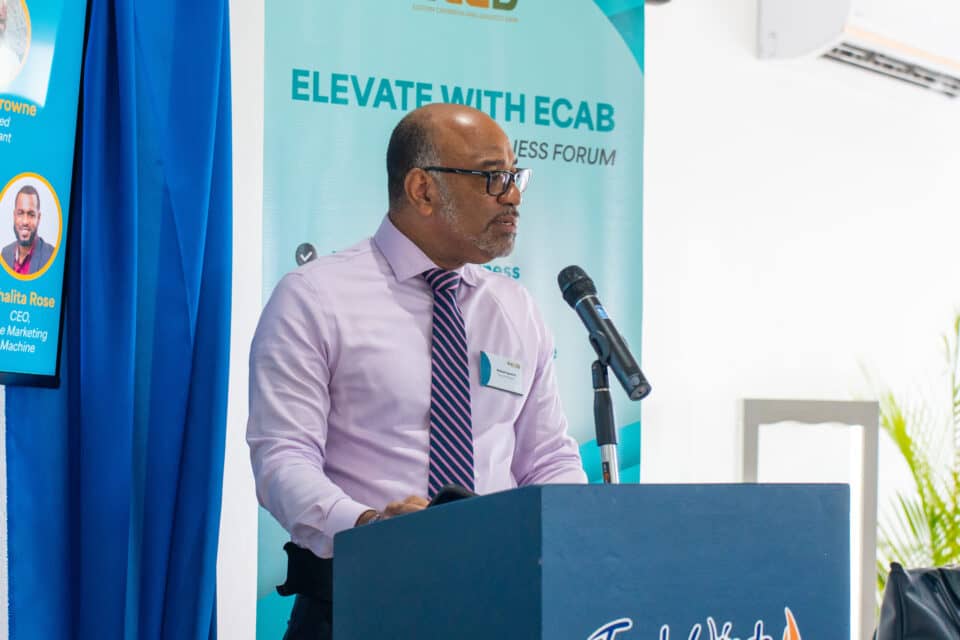
Antigua and Barbuda’s economic transformation over the past decade owes much to strategic interventions in the financial sector, spearheaded by the government of Prime Minister Gaston Browne.
A key focus of these efforts was the stabilization and strengthening of the banking industry, which had been on the brink of collapse in 2014.
Today, Antigua’s locally owned banks are thriving, posting record profits and demonstrating the success of policies aimed at fostering resilience and local ownership.
When the Browne administration took office, Antigua’s banking sector was in disarray. ABI Bank had failed, and Caribbean Union Bank was struggling to remain operational.
The government stepped in to restructure and consolidate the sector, implementing policies that prioritized local ownership and long-term sustainability.
These measures included facilitating the transfer of assets and liabilities to Antigua Commercial Bank (ACB) and Eastern Caribbean Amalgamated Bank (ECAB), ensuring stability for depositors and strengthening the institutions.
Prime Minister Browne highlighted the financial success of local banks as a direct outcome of these interventions. ACB, now a key player in the Eastern Caribbean banking sector, recently posted a net profit of over $40 million, while ECAB recorded profits exceeding $60 million in 2024.
Combined, the two banks generated approximately $100 million in net profits—a stark contrast to their precarious financial state a decade ago.

“The policies we implemented ensured that these institutions remained under local control, resulting in increased retained earnings and higher dividend yields for shareholders,” Browne said. “This is a success story of resilience and foresight.”
The Prime Minister underscored the importance of keeping these financial institutions locally owned.
He noted that retaining ownership within the country allowed profits to be reinvested into the local economy rather than being repatriated abroad.
This approach not only strengthened the banks but also provided a more stable foundation for Antigua and Barbuda’s financial system.
“By ensuring local ownership, we have created a stronger, more resilient banking sector that can withstand future economic shocks,” Browne added. “This is a safeguard for depositors and a testament to the effectiveness of our government’s fiscal policies.”
The banking sector’s turnaround is part of a broader strategy to enhance Antigua and Barbuda’s economic resilience.
The government’s actions, from resolving the challenges of failing banks to fostering profitability, demonstrate a commitment to building a sustainable and thriving financial ecosystem.
As the nation enters 2025, Browne expressed confidence that the policies driving growth in the financial sector would continue to benefit the country.
“We have laid the groundwork for a prosperous future,” he said. “Through bold decision-making and strategic planning, we are building an economy that works for all Antiguans and Barbudans.”
Advertise with the mоѕt vіѕіtеd nеwѕ ѕіtе іn Antigua!
We offer fully customizable and flexible digital marketing packages.
Contact us at [email protected]
















Locals owning shares in the bank great, great. Who are these 10 local owners? How about the 100,000 Locals of Antigua and Barbuda?
I remember some numbers came out a few years ago saying deposits have increased by a certain number, the same time my deposit was a substantial percentage of that number. My point is, is it just a few people making these large deposits in which the bank is capitalizing/profiting from?
There is nothing about the $100 million is the banks’ profit that shows direct positive impact on majority of Locals. It shows that the 10 (exaggeration for the sake of impact) shareholders are doing well.
Provide me and the public with evidence that the millions in deposit the few have deposit, which is sitting in our accounts and profiting the 10 shareholders of the bank are impacting the Antigua and Barbuda economy and people in any direct or substantial way?
I am happy banks are doing well but I would be happier if banks and locals are doing well together. It is now time that ABLP make laws for banks to pay their fair share in taxes, grant loans/credit cards based on credit (stop demanding collateral for everything), and all their investments cannot be abroad or stock markets but they must have some percentage of local investments too. ABLP loves making laws to take away liberty, demanding judges to put you in prison before a trial, and for punishment to be severe, and for children to be confined beyond certain hours and extend school hours, taking away all rights and freedom of the average Locals. Why not enact such laws pertaining to the banks and hotels as I have continuously demand of you? Please stop bullying the locals and utilize creative and innovative pragmatic strategies to guide and aid locals instead.
I will soon be writing an article here on what to look for in good leaders.
Gaston, answer me two questions please.
1. Whey all de Africaans and them that min come pan Antigua Airways gone?
2. Melford say are you min get dupe wen de other plane and dem min land, Gaston suben go so for real?
CIA Black Ops????? Asking for a friend
Totally agree with you @ my way of helping. The banks needs to pass on so.e of the monies to their customers whose monies they invest.
Ok then… Richer banks and poorer people because savings percentage is almost nonexistent, loan percentage is very high, and there are fees to do every little thing.
@ Ummmmm Yeah, the fees are ridiculous but the service is worse.
It’s a lose/ lose situation.
The growth of both ACB and ECAB came only because they were able to purchase the assets of the two Canadian banks that were leaving Antigua and the Caribbean. The profits here in the Caribbean where too small for them. Other than that these two banks ACB and ECAB didn’t do anything different to grow their assets. Actually they don’t even make any effort to get new customer deposits. I try to make an appointment to open a new Fix Deposit and my appointment was set three months in the future. That is the urgency with what they want your money. I mean the money is at another bank. But they have no interest in it. And even when you open and CD with them, the rates are only 1.5% to 2% the most. All this and they still not promoting giving out loans and mortgages to a wider section of the community. You have to bring even your grandfather information to them. A bank makes money by lending money and by making investment and charging fees. It seems that charging fees is their main way of earnings these days. When you see how much they charge small vendors for using POS payment systems, it makes no sense whatsoever. They are just killing small bunisess with fees. While all over the world, small businesses like market vendors and others are encourage to use the latest payment systems and cash is almost non-existence. can you imagine what it would cost a market vendor here to settle a payment of $10.00 with a debit card machine? There entire profit will be swallowed up by the bank fees.
Comments are closed.